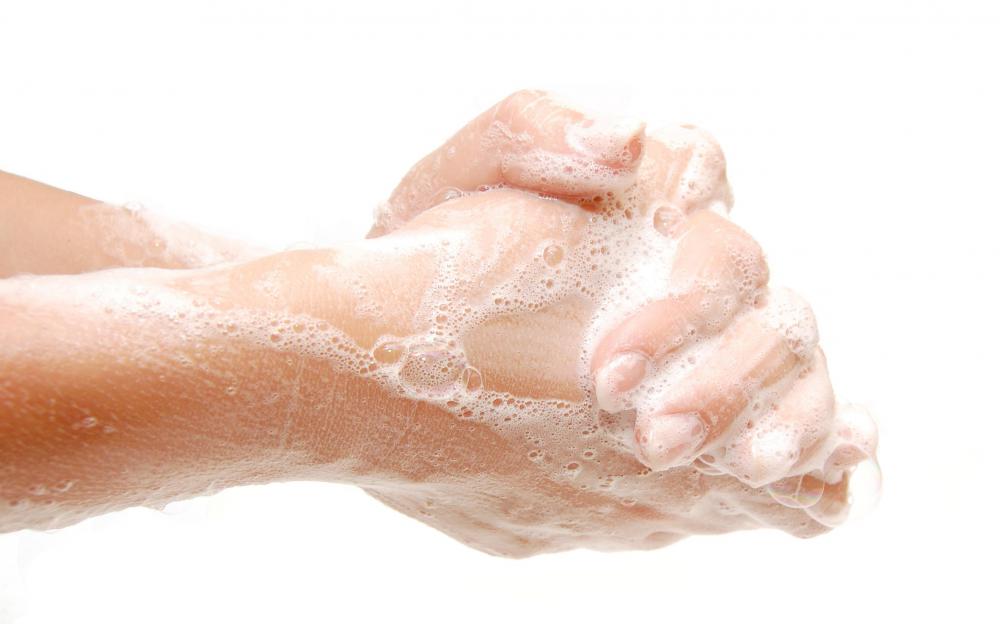At TheHealthBoard, we're committed to delivering accurate, trustworthy information. Our expert-authored content is rigorously fact-checked and sourced from credible authorities. Discover how we uphold the highest standards in providing you with reliable knowledge.
What are Super Bacteria?
Super bacteria, also referred to as super bugs, are bacteria that have grown resistant to most antibiotics. When doctors prescribe the typical antibiotics for fighting an infection caused by super bacteria, the antibiotics usually fail to eradicate the bacteria. Instead, bacteria may actually thrive despite the medication, sometimes even killing the patient. To fight resistant bacteria, doctors often turn to even stronger antibiotics, but it seems that some bacteria are developing the ability to thrive despite even the toughest antibiotic treatments.
In the past, a doctor would prescribe antibiotics to treat a bacterial infection, and with time, the person would get better. Today, that may still happen in most cases, but scientists have become concerned that antibiotics are being misused, a situation implicated in the development of super bacteria. For example, this sort of misuse may occur when a person has an infection that appears to be bacterial, but his doctor does not perform diagnostic testing to be sure the infection is bacterial. He may then prescribe an antibiotic that the patient doesn’t really need.

In some cases, parents may request antibiotics that their children don’t really need, and their doctors may feel pressured to provide them. For example, a child may have an upper respiratory infection that seems similar to a cold but has lingered so long that her parents feel it must be something serious. They may call their doctor, tired of waiting for the infection to resolve on its own, and insist on an antibiotic. If the doctor prescribes one without being completely sure the condition is caused by bacteria, he may be creating an optimal situation for the development of super bacteria.

Sometimes people start taking antibiotics they do need, but stop taking them as soon as they feel better, even if they haven’t finished the full course their doctors prescribed for them. This is a problem because it may allow bacteria to survive the part of the treatment the patient completed. Then, the bacteria can reproduce, sickening the person again and possibly creating bacteria that are resistant to that antibiotic.

Some people believe antibacterial soaps and cleaning liquids are also to blame for the development of drug-resistant bacteria. Many people buy these products because they think they may help to prevent bacterial infections. Instead, some experts believe they may actually increase bacterial infection rates. In fact, some recommend avoiding products that are labeled as capable of killing 99 percent of germs and bacteria.
AS FEATURED ON:
AS FEATURED ON:















Discussion Comments
That is what doctors fear: the one percent that survived is resistant to the antibacterial (soap, hand sanitizer, medicine, etc.) and is immune to the antibiotic! They fear that those/that bacteria will reproduce, creating a new 'strain' of some sorts that is now immune to the antibiotic. If this continues and different antibiotics are used, you eventually will create a super germ that is practically unkillable.
so what happens to the 1 percent that is not effective?
This article really helped me with my bacteria lesson -- thank you!
One of the bacteria most commonly associated with the "super bacteria" fear is staphylococcus bacteria.
This is the the culprit behind most of the super bacteria news, since it shows up a lot of times as MRSA in hospitals.
MRSA is in fact only one kind of staph bacteria, and while there are fears of other strains becoming resistant to antibiotics, people can go a long way in preventing these superbugs from developing by only using antibiotics when absolutely necessary.
So only use them according to the directions, and when prescribed by a doctor.
Post your comments